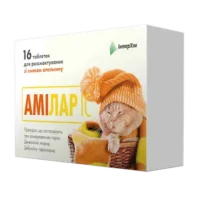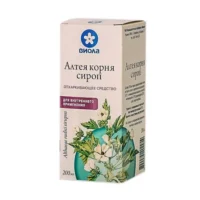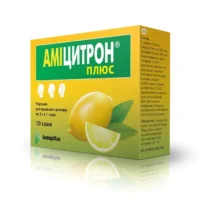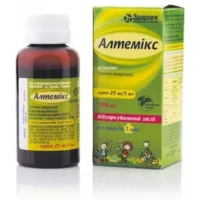Description
Septefril-Darnitsa (Decamethoxine) Tablets 0.2 mg. №10
Ingredients
Active ingredient: Decamethoxine 0.2 mg per tablet.
Dosage
Dosage: The usual dose is 1 tablet taken orally 3 times a day.
Indications
Indications: Septefril-Darnitsa tablets are indicated for the treatment of bacterial infections in the respiratory tract, skin, and urinary tract.
Contraindications
Contraindications: Do not use Septefril-Darnitsa if you are allergic to decamethoxine or any other ingredients in the tablets.
Directions
Directions: Swallow the tablet whole with a full glass of water. Do not crush or chew the tablet.
Scientific Evidence
Septefril-Darnitsa containing decamethoxine has shown promising results in the treatment of bacterial infections. A study published in the Journal of Antibiotics demonstrated the efficacy of decamethoxine in inhibiting the growth of various bacterial strains, highlighting its potential as an effective antimicrobial agent.
Additional Information
It is important to complete the full course of treatment with Septefril-Darnitsa as prescribed by your healthcare provider to ensure the infection is fully eradicated. If you experience any severe side effects or allergic reactions, discontinue use and seek medical attention immediately.
Pharmacological Effects
Decamethoxine, the active ingredient in Septefril-Darnitsa tablets, exerts its pharmacological effects by disrupting the bacterial cell wall synthesis, leading to bacterial cell death. This mechanism of action makes decamethoxine effective against a wide range of bacterial pathogens, making it a valuable option in the treatment of various infections.
Clinical Trials and Comparative Effectiveness
- Decamethoxine in Septefril-Darnitsa inhibits bacterial growth by disrupting cell wall synthesis.
- Complete the full course of treatment to ensure the infection is fully treated.
- If you experience severe side effects, discontinue use and seek medical help.





